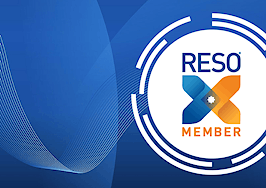Technology companies looking to join the real estate industry are set to get a big assist by year’s end. By Jan. 1, the lion’s share of multiple listing services are required to switch over to a real estate data standard that will make it faster and easier for them to roll out tools to agents across the country.
Firms that want to get a head start may want to consider attending a “Show N Tell” session at the Real Estate Standards Organization (RESO) spring conference in Chicago on June 2.
Most of the 150 or so attendees will be executives or technologists of MLSs, associations and brokerages — the folks who decide which tech products to offer the nation’s real estate agents.
“If someone has the latest whiz bang, wow, neat, killer app that our real estate industry is just dying to see, they get an opportunity to present,” RESO spokesman Kevin Hawkins told Inman.
RESO is a nonprofit that aims to foster software innovation and improve efficiency in real estate transactions.
Its 136 members, including the 1 million-member National Association of Realtors, do this by developing and implementing standards that allow systems to exchange real estate data smoothly and accurately.
Therefore, RESO’s Show N Tell comes with a unique twist: Although not required, the trade group is looking for demonstrations from people for whom real estate data standards play, or will play, a big part in their product’s success.
Products that connect to an MLS or another data server to acquire information would also be a plus.
“If you’re a MLS, vendor, consultant, broker, squire, soothsayer (or whatever) and interested in showing some ‘neat’ work that you’re developing and/or selling into the real estate marketplace, then this is the place to show your stuff to peers, get feedback, criticism, raving reviews, Twittered, Facebooked, awards and prizes,” the trade group says on its website.
Feedback from attendees will likely continue well after each five- to 10-minute presentation is complete, Hawkins said.
“[That] really helps these companies discover the obstacles they need to overcome and how real are the pain points they are trying to address,” he said.
The only requirement is that presenters be RESO members (joining starts at $500). There is no additional fee to participate. Selection is based on content proposed, and sponsors do not get priority.
The trade group’s current “big push” in the industry is adoption of one of its standards, the RESO Data Dictionary, by MLSs.
In November, NAR’s board approved a policy requiring Realtor-affiliated MLSs to comply with the Data Dictionary by Jan. 1, 2016.
Dubbed the “Rosetta Stone” for real estate data, the Data Dictionary is a standardized set of data terms for the most common descriptions of property characteristics used in the industry.
Here’s why the Data Dictionary is important: New technology tools for agents come out all the time. But if those tools rely on listing data, that doesn’t mean all agents have access to them.
Often, tech firms roll out those products slowly, market by market, because they have to take the time and effort to code their product to each multiple listing service’s specific data format, which is likely different from that of the other MLSs the vendor is working with.
There are more than 800 MLSs nationwide. So if you see a really cool tool that your agent friends across the country are using to make their business more efficient, that doesn’t mean you can just buy it and use it like any other app.
By year’s end, however, that “plug and play” ideal may be closer to reality.
The Data Dictionary will allow tech firms to access data from different MLS systems in a standard format, allowing them to map MLS data to their apps more quickly, thereby saving them not only time, but money.
Once the vast majority of MLSs speak the same language, that is expected to set the stage for tech developers to build more, better, and cheaper agent and broker tools powered by real estate data.








